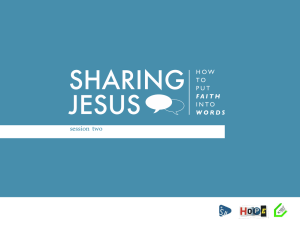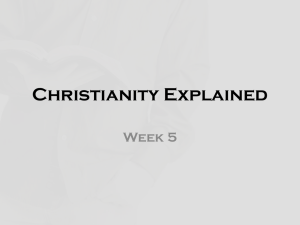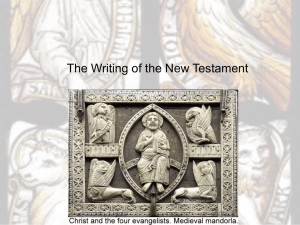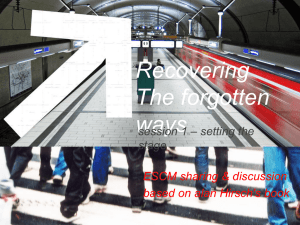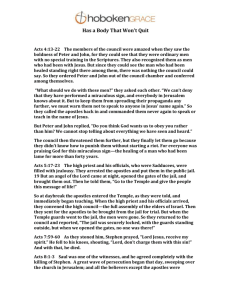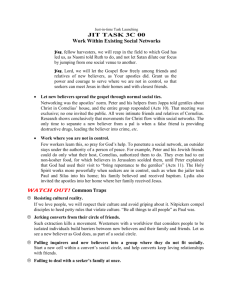Fr. Dennis
advertisement
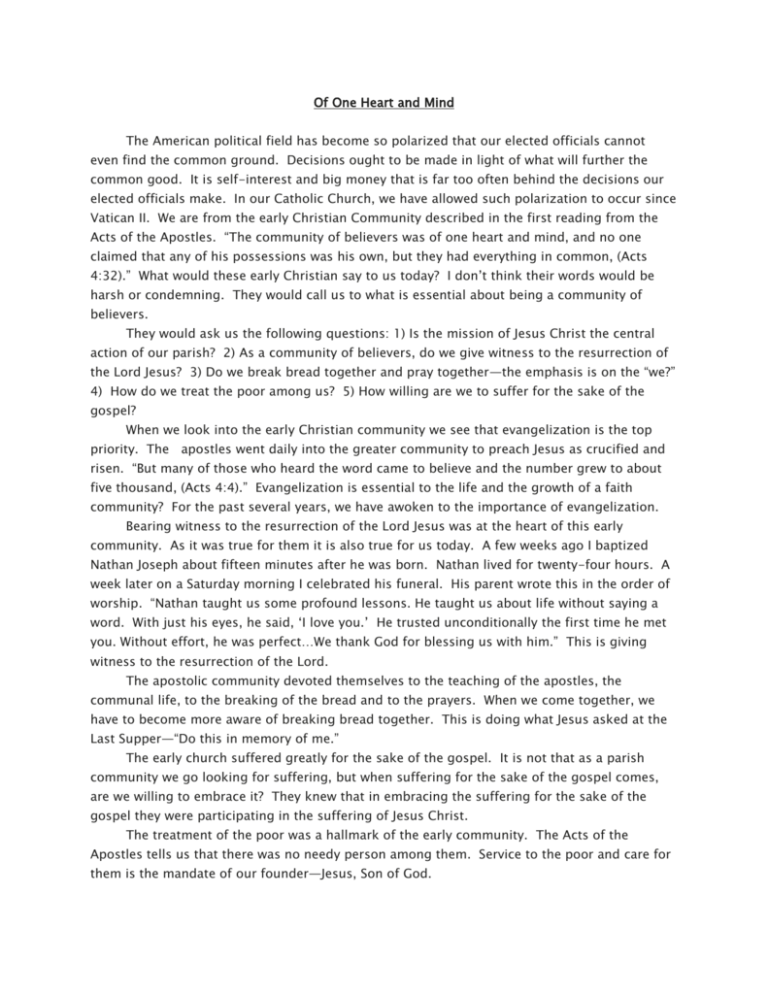
Of One Heart and Mind The American political field has become so polarized that our elected officials cannot even find the common ground. Decisions ought to be made in light of what will further the common good. It is self-interest and big money that is far too often behind the decisions our elected officials make. In our Catholic Church, we have allowed such polarization to occur since Vatican II. We are from the early Christian Community described in the first reading from the Acts of the Apostles. “The community of believers was of one heart and mind, and no one claimed that any of his possessions was his own, but they had everything in common, (Acts 4:32).” What would these early Christian say to us today? I don’t think their words would be harsh or condemning. They would call us to what is essential about being a community of believers. They would ask us the following questions: 1) Is the mission of Jesus Christ the central action of our parish? 2) As a community of believers, do we give witness to the resurrection of the Lord Jesus? 3) Do we break bread together and pray together—the emphasis is on the “we?” 4) How do we treat the poor among us? 5) How willing are we to suffer for the sake of the gospel? When we look into the early Christian community we see that evangelization is the top priority. The apostles went daily into the greater community to preach Jesus as crucified and risen. “But many of those who heard the word came to believe and the number grew to about five thousand, (Acts 4:4).” Evangelization is essential to the life and the growth of a faith community? For the past several years, we have awoken to the importance of evangelization. Bearing witness to the resurrection of the Lord Jesus was at the heart of this early community. As it was true for them it is also true for us today. A few weeks ago I baptized Nathan Joseph about fifteen minutes after he was born. Nathan lived for twenty-four hours. A week later on a Saturday morning I celebrated his funeral. His parent wrote this in the order of worship. “Nathan taught us some profound lessons. He taught us about life without saying a word. With just his eyes, he said, ‘I love you.’ He trusted unconditionally the first time he met you. Without effort, he was perfect…We thank God for blessing us with him.” This is giving witness to the resurrection of the Lord. The apostolic community devoted themselves to the teaching of the apostles, the communal life, to the breaking of the bread and to the prayers. When we come together, we have to become more aware of breaking bread together. This is doing what Jesus asked at the Last Supper—“Do this in memory of me.” The early church suffered greatly for the sake of the gospel. It is not that as a parish community we go looking for suffering, but when suffering for the sake of the gospel comes, are we willing to embrace it? They knew that in embracing the suffering for the sake of the gospel they were participating in the suffering of Jesus Christ. The treatment of the poor was a hallmark of the early community. The Acts of the Apostles tells us that there was no needy person among them. Service to the poor and care for them is the mandate of our founder—Jesus, Son of God. These five areas would be the points the early community of believer would have us seriously reconsider. It is also these five points that Pope Francis is calling to Church today to embrace. If you will, it is returning to the basics of being a Christian community.




